Sermon: Breathing, Balancing, Ripening…
Published by Ronald Steed,
LENT | WILDERNESS | SOUL & SELF
Sermon: Breathing, Balancing, Ripening…
St. Andrews Episcopal Church, Madison, CT ¹. Taken from Mark 1:9–15 ²

A Breath from the Divine Heart is coming… | Photo by Ronald Steed
Abwoon d’Bwashmaya: A breath from the divine heart is coming into our hearts, giving birth to something new this moment: our lives. ³
Let’s take a breath together.
Loose Cannons
Some of you remember the movie Lawerence of Arabia that came out in 1962. It’s one of my favorites, not only because it is brilliantly shot and acted, but also because it is deeply disturbing. It has a lot to say about power. In it, a British Intelligence Officer, Thomas Lawerence, is set loose to break the strategic impasse in the Middle East by helping the Arab Revolt against the Ottoman Empire during World War 1.
To say that Lawerence’s bosses are a little reluctant to let him do this in the movie is a real understatement. Lawerence is what is sometimes called "a loose cannon", and it not the habit of diplomats or generals to put the fate of nations into the hands of wild-ones like him, though… even today sometimes, one wonders. They relent however, and into the wilderness he goes.
Lawerence of Arabia, as it turns out, is a brilliant out-of-the-box thinker, and the time is ripe for exactly his kind of thinking. Before long, the Arabs are able to do things no one thought possible. Taking the strategically vital coastal fort of Aqaba by attacking from the desert side was one such exploit.
But over time, Lawerence gets seduced by Power. Of course, from HIS view, Lawerence is just using Power as a tool for good. In the movie, he begins to play God, doling out life and death as he sees fit, to the horror of his more balanced friend Ali.
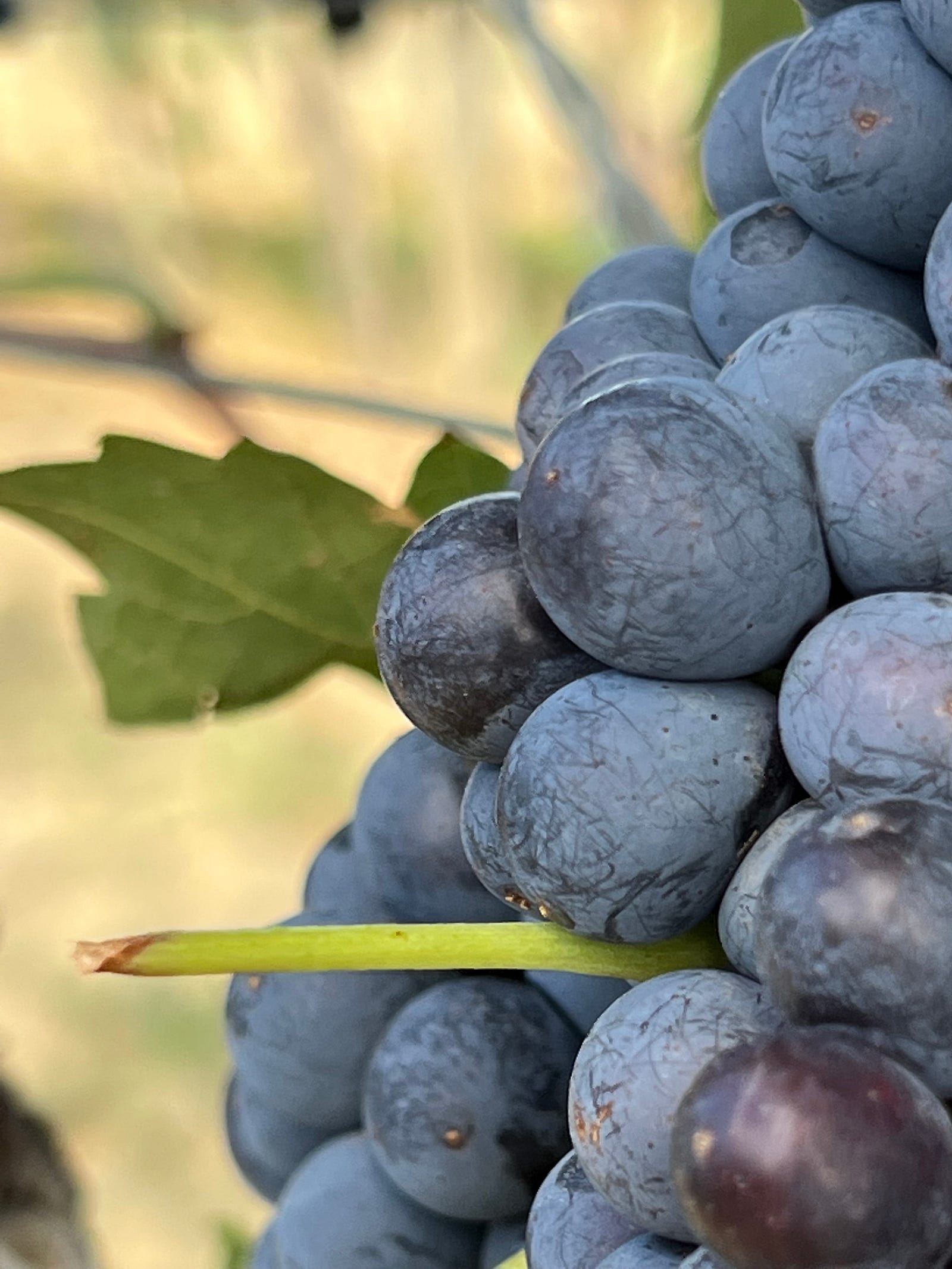
Acting "ripely" is one of Jesus’ teachings… finding that sweet spot between unripe and over-ripe | Photo by Ronald Steed in Montepulciano, Tuscany
In the end, the Brits and the Arabs get what they want, and Lawrence is no longer useful to either of them. Lawerence is, in a phrase, "over ripe"; out-of-balance with what is needed. Lawerence is given a congratulatory promotion to Colonel, and is told to go home.
So Lawerence of Arabia has a lot to say about the tragedy of Power. And that seems as relevant today in Israel, Gaza, Ukraine, Russia, and the United States as it was during World War 1. It also has a lot to say about today’s gospel. Or rather, today’s Gospel has a lot to say about Lawerence.
Let’s take a breath together.
Balancing Light & Breath
Of course, it is not Lawerence who comes up out of the waters of chaos, but Jesus. In Mark’s Gospel, "just as [Jesus] was coming up out of the water, he saw the heavens torn apart and the Spirit (the breath of God) descending like a dove on him. And a voice came from heaven, "You are my Son, the Beloved; with you I am well pleased."
This is exactly the same story from Genesis Chapter 1: "In the beginning when God created the heavens and the earth, the earth was a formless void and darkness covered the face of the deep, while a wind from God (the Breath of God) swept over the face of the waters. Then God said, ‘Let there be light’; and there was light."
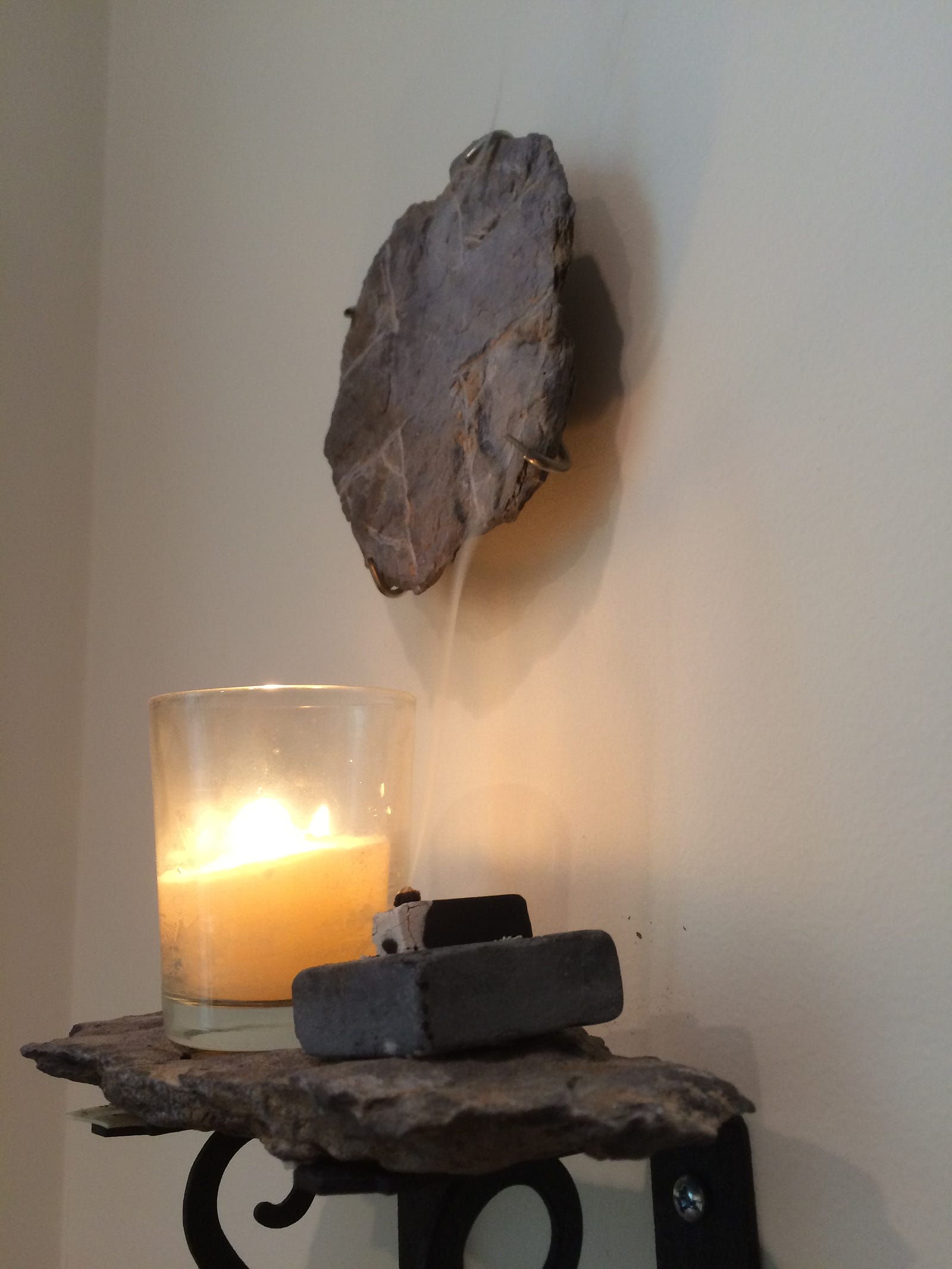
Balancing light and darkness | Photo by Ronald Steed
In both scenes, the Breath of God is the main actor, and out of the waters of chaos, the Voice of God speaks something new into creation. In the Genesis story, a balance between light and darkness, and in Mark’s story, there is also a balance within Jesus, between the fullness of God’s breath and Jesus’ own personal and very human breath. And God’s breath carries creational words: words of relationship… of belovedness… of pleasure in the other; the words of love. Before long Jesus, like God, is himself speaking something new into creation: "The time is ripe", he says, "and God’s good road… God’s heart-desire, has come near…".
Taming the Wild One
But first, the Breath of God drives Jesus into the wilderness, where something has to happen to Jesus before that proclamation can be made. Jesus is also a loose cannon, a wild-one… an out-of-the-box thinker. But, unlike Lawerence, Jesus is going to go on retreat first… he is going to get quickened… balanced, ripened. And that’s what I think happens in the wilderness to Jesus of Arabia; breathing, balancing, and ripening.
The wilderness appears many times in the Bible. It is not chaos like the waters, but it is not easy either. It is a place of intensity and starkness. There are dangers and deliverance. There are wild animals and angels. There might be temptations. It can be intensely lonely… there are no towns or villages… and yet, someone may walk with you there. You need your wits, and sometimes, your only hope might be with the divine:
- Abraham sends his slave-wife Hagar and their son Ishmael into the wilderness to die. They are saved by an Angel.
- In the wilderness with his flock, Moses witnesses the burning bush, where God speaks something new into him.
- Israel wandered 40 years in desert where they were strongly tempted to go back to Egypt, before they entered the promised land. God was with them every step of the way.
- Elijah, facing death threats, flees to the wilderness. There, he is fed by angels and goes 40 days to Mount Horeb to hear God’s voice in the sheer silence.
- John the Baptist is at work in the wilderness, and of course, Jesus went there to get baptized.
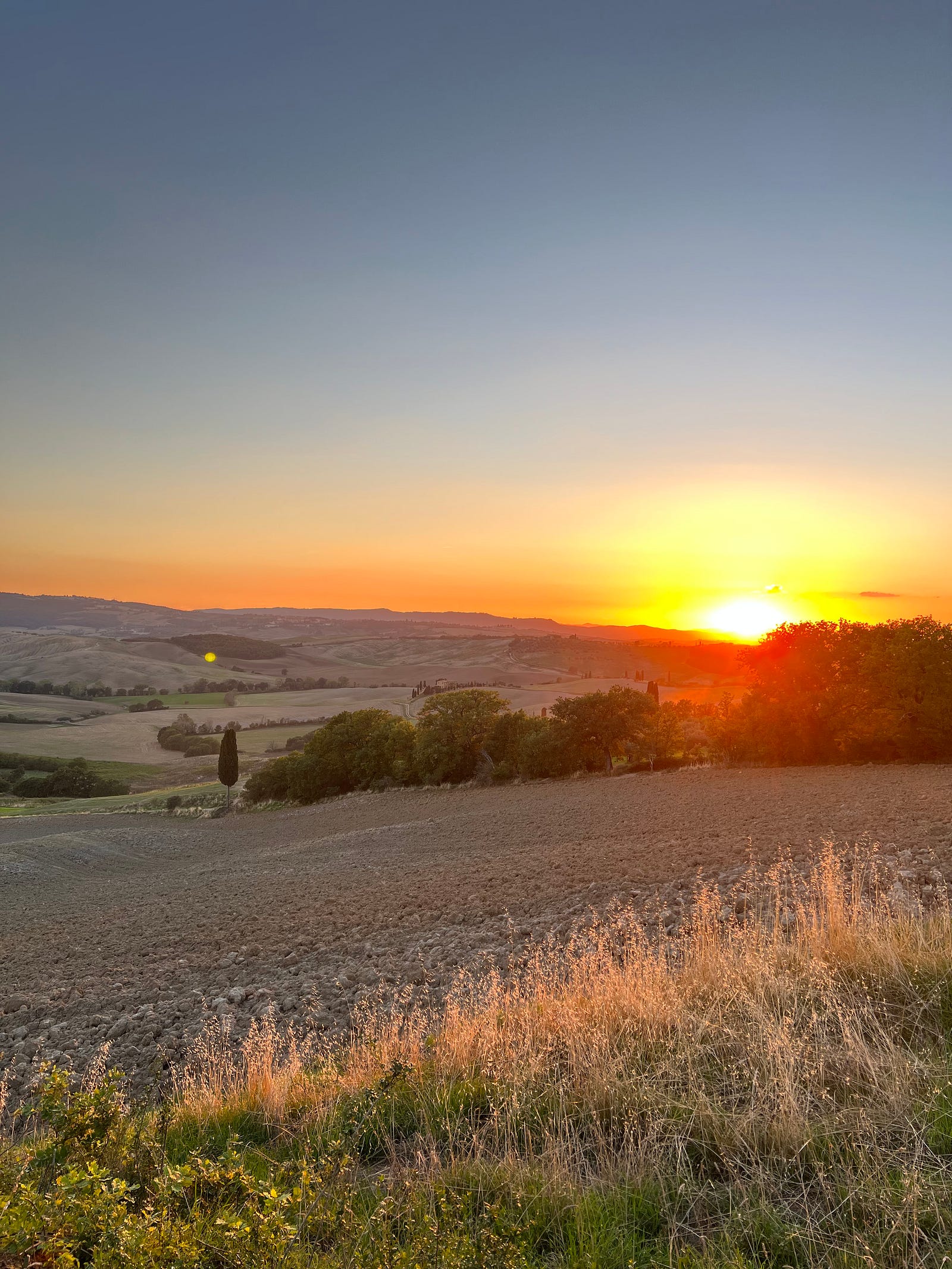
The badlands just beyond the field-furrows | Photo by Ronald Steed near Pienza, Tuscany
To balance this overwhelming presence of God’s breath within him, and his own personal breath, Jesus has to go to the wilderness. He has to LEARN how to find this balance and how to work with it. He has to put his personal breath in a state of privation so that it is DEPENDENT on the breath of God. The whole point of the wilderness is for Jesus to learn to exist in the tension between a spare and dangerous place and the abundant and loving source of creation. (And isn’t holding that tension the SAME for us?)
Jesus is subject to "temptations" as it is put in English; more like "forgetting" in Jesus’ native Aramaic language. Mark is not specific about the forgetting that Jesus is tempted with, in the way that Matthew gives a full account. So here, we might turn to Major Lawerence for some help.
Soul & Self
Lawerence goes into the wilderness, forgetting the source of his life. He does not remember the Breath of God, only his own personal breath. Violence, war, domination, power, and ultimately, rejection was the fruit of his work in the absence of God. His IS a monumental work, certainly, which just speaks to the awesome potential of the human self… and it is horrifically destructive. We are still dealing with some of the fallout of Lawerence’s forgetting in the Middle East today. It is his friend Ali who actually found a more balanced breathing between self and God, who is horrified by Lawerence’s violence, and takes a gentler path. My sense is that, like Lawerence, it is the temptation to forget God and to grasp power that was offered to Jesus’ human self.
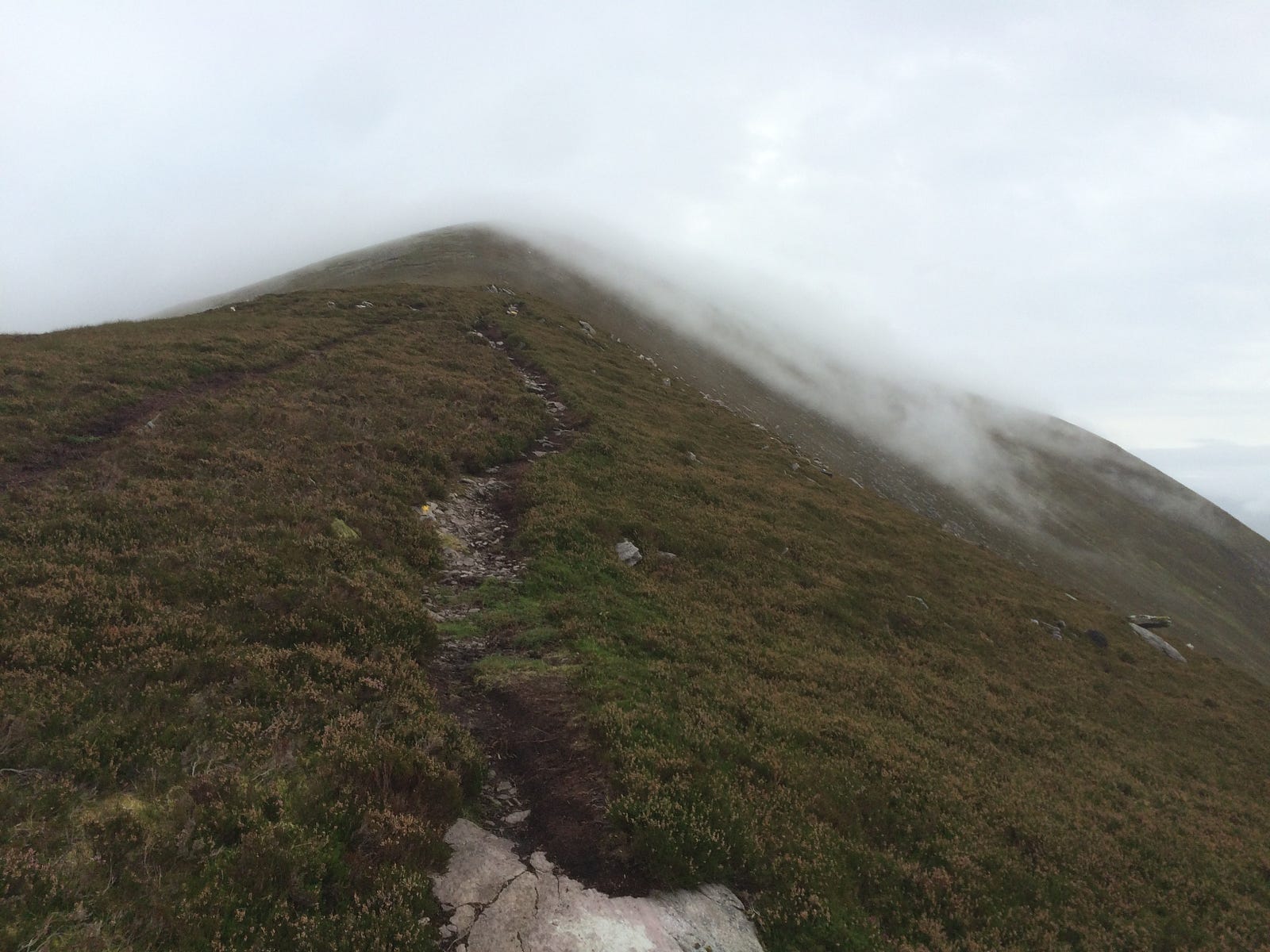
"Forgetting" is sometimes like fog that separates us from Source | Photo by Ronald Steed near Dooneen, Ireland.
We humans are given a soul and a self. Both are whole in the sense that both come and are sustained by God, but separate polarities of the whole, in the sense that our egos can act independently. We NEED the self to operate in the world. Jesus needed the personal self to incarnate here. It’s not evil… it has a purpose. AND, the personal self gets easily distracted… the ego can forget God. The ego can put itself in the place of God. When we connect our soul to our personal self, and remember that both are fed and animated by the Breath of God, then we find the guidance we need to send our personal self into the world with LOVE, and not POWER, as it’s main tool. The chief sin of humanity has more to do with FORGETTING God’s breath in us than anything else.
And so Jesus goes into the wilderness to tame the wild self within him… to learn how to balance it with the strong Breath of God that is ALSO within him… and to put these two selves in right relationship. It is the personal self that serves the soul; not the other way around. After 40 days of ripening this balance, Jesus is ready to go out into the world with a proclamation; "The time is ripe, and God’s good road… God’s heart-desire, has come near…"
Let’s take a breath together.
Finding Our Own Balance
All of us are just like Jesus in this way. I think that is actually one of his core messages to us… "you can DO what I am DOing… balance what I am balancing… just put self and soul in right relationship, and remember the one who made you". This Jesus story in Mark is also OUR story. Heaven is so much closer to us than we think… there are thin places where the fabric between heaven and Earth is torn, and one of those places is in our hearts.
The Breath of God commingles with our personal breath, and God’s breath gives voice to new creation in every heart as it speaks; of relationship… of belovedness… of pleasure in the other. It is the work of Love in our hearts to FIND the balance between these breaths. Sometimes, we will be driven out into the wilderness as Jesus was, for a time of balancing and of ripening. And in the fullness of time, maybe 40 days of Lent, we are ready to walk when God’s good road comes near.
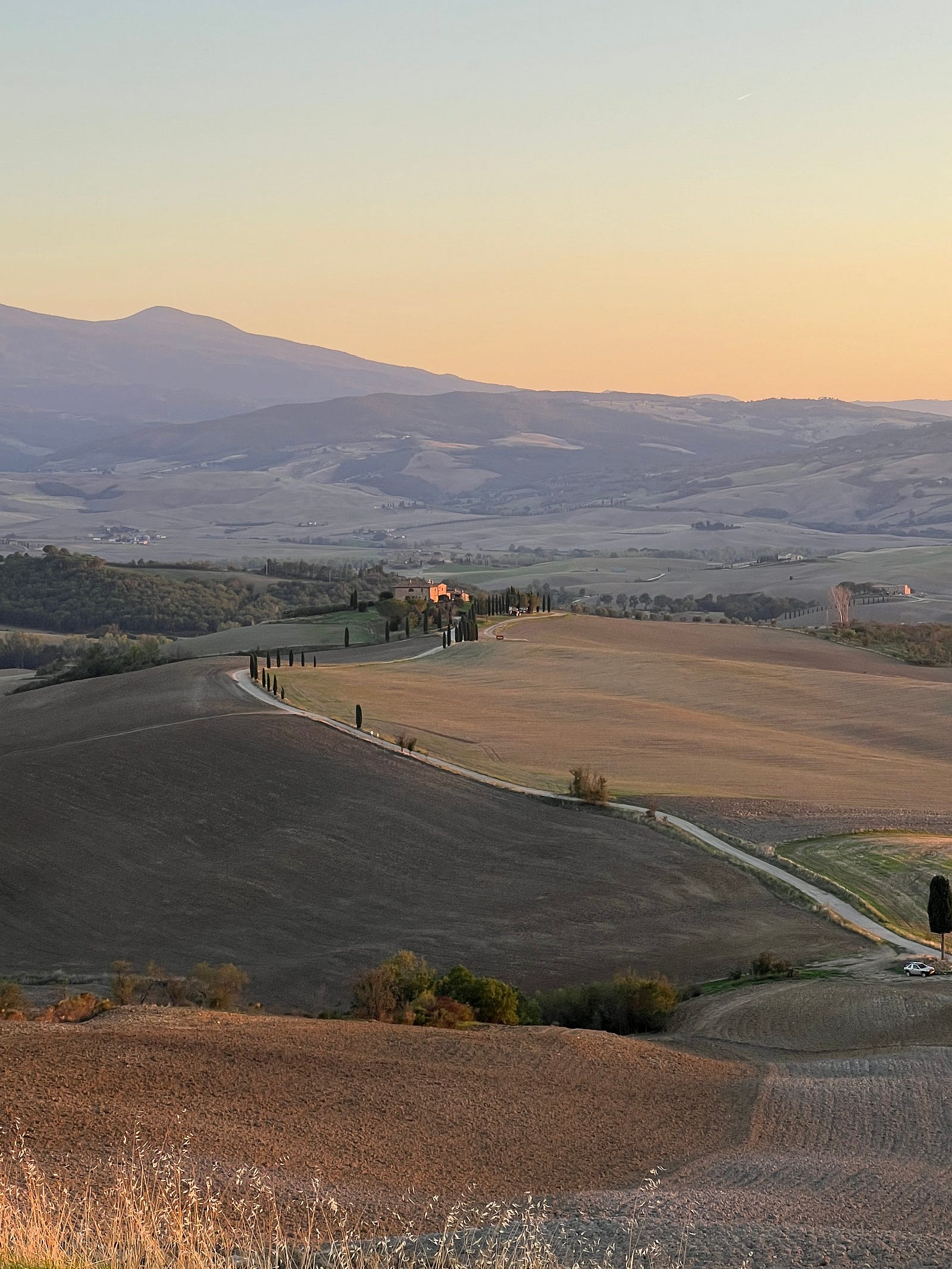
When God’s good road comes near | Photo by Ronald Steed near Pienza, Tuscany
When we don’t find this balance, when we forget that there is a balance to find… then there is danger, and violence, and war. I can’t help but to think that Gaza, Israel, Ukraine, Russia, and the United States are places where the breath is more like Lawerence and less like Jesus. The fruit of Lawerence’s breathing is Power. The fruit of Jesus’ breathing is Love.
In the movie, a reporter asks; "What is it, Major Lawrence, that attracts you personally to the desert?" I find it more than a little ironic that the question is posed about Lawerence’s personal self. He responds; "It’s clean. I like it, because it is clean". His is a self that forgets that he has a soul also, and he forgets that both come from the Love of God.
If there had been a reporter to ask Jesus the same question at the end of his 40 days, the answer might have been "I like it because it’s a place where I find my breath balanced and mingled with God’s breath, it is where self and soul ripen for action… it is the place where I remember that I come from Love."
May your Lenten wilderness be a place for finding your own breath balanced with God’s Breath… your own self and soul ripened for action… and your own heart discovered within the heart’s desire of the One who is Love.
Let’s take a breath together…
¹ This sermon was delivered at St. Andrews Episcopal Church, Madison, CT, on the first Sunday in Lent, February 18, 2024
² Mark 1:9–15 (NRSV)
In those days Jesus came from Nazareth of Galilee and was baptized by John in the Jordan. And just as he was coming up out of the water, he saw the heavens torn apart and the Spirit descending like a dove on him. And a voice came from heaven, "You are my Son, the Beloved; with you I am well pleased." And the Spirit immediately drove him out into the wilderness. He was in the wilderness forty days, tempted by Satan; and he was with the wild beasts; and the angels waited on him. Now after John was arrested, Jesus came to Galilee, proclaiming the good news of God, and saying, "The time is fulfilled, and the kingdom of God has come near; repent, and believe in the good news."
³ Some of the themes of this sermon are drawn from: Douglas-Klotz, N. (2022). Revelations of the Aramaic Jesus: The Hidden Teachings on Life & Death. Hampton Roads.